College of Agricultural Engineering and Technology Highlights
| Parameter |
Description |
|---|
| Established |
1970 |
| Courses |
3 Degrees and 11 Courses |
| Institute Type |
Affiliated College |
| Student Count |
211 |
| Faculty Count |
4 |
| Campus Size |
1 acre |
College of Agricultural Engineering and Technology Accreditation and Ranking
CAET Approval by AICTE: The All India Council for Technical Education (AICTE) was established in November 1945 as a national-level apex advisory body with the aim of conducting a comprehensive survey of the available facilities for technical education and promoting development in a coordinated and integrated manner across the country. The AICTE Act was formulated to establish the council, intending to facilitate proper planning and coordinated development of the technical education system throughout India. Its objectives include promoting qualitative improvements in technical education alongside planned quantitative growth, as well as regulating and maintaining norms and standards within the technical education system and related matters.
CAET affiliated with PDKV: Dr. Panjabrao Deshmukh Krishi Vidyapeeth, Akola, founded on 20th October 1969, is headquartered in Akola, Maharashtra. The university is named in honor of Dr. Panjabrao Deshmukh, a prominent figure in Vidarbha and former Minister for Agriculture in the Government of India. Its jurisdiction spans eleven districts of Vidarbha. As per the University Act of 1983, bestowed by the Government of Maharashtra, the university is tasked with agricultural education, research, extension education, and breeder and foundation seed programs.
The main campus, situated in Akola, hosts instructional programs across five colleges: College of Agriculture, College of Agricultural Engineering & Technology, College of Forestry, College of Horticulture, and the Post Graduate Institute. It offers undergraduate programs such as B.Sc. (Agriculture), B.Sc. (Horticulture), B.Sc. (Forestry), and B.Tech. (Agricultural Engineering), along with postgraduate programs like M.Sc. (Agriculture) and M.Tech. (Agricultural Engineering), as well as doctoral programs in Agriculture and Agricultural Engineering.The university also operates a sub-campus in Nagpur, featuring the College of Agriculture, offering degrees in B.Sc. (Agriculture) and M.Sc. (Agriculture). The Nagpur Campus boasts a scenic garden and a well-established zoo, drawing visitors to the city. Furthermore, a dedicated botanical garden spread across 22 hectares, complete with a greenhouse, serves the research community.
Additionally, the university oversees two affiliated grant-in-aid colleges and fourteen private non-grant-in-aid colleges. A Central Research Station located at the main campus supports research projects, focusing on principal crops like Cotton, Sorghum, Oilseeds, and Pulses in the region. This multifaceted approach ensures a comprehensive platform for agricultural education, research, and development in the region.
College of Agricultural Engineering and Technology Courses Offered
College of Agricultural Engineering and Technology courses are offered at various levels like Undergraduate Degrees i.eBachelor of Technology (B.Tech.) in Agricultural Engineering, etc., Postgraduate Degree i.e Master of Technology (M.Tech.) in Renewable Energy, Master of Technology (M.Tech.) in Soil Water Conservation Engineering, etc. You can also find a brief overview of the different courses offered by the university across various disciplines with their specializations on the Course page.
College of Agricultural Engineering and Technology Infrastructure and Facilities
The College Of Agricultural Engineering And Technology has a sprawling campus that is well-maintained and provides a serene environment for learning. The buildings are modern and equipped with state-of-the-art technology, College Of Agricultural Engineering And Technology making it easier for students to learn and faculty to teach. The classrooms of the College Of Agricultural Engineering And Technology, lecture halls, and labs are spacious, comfortable, and designed to provide an excellent learning experience. The library is also outstanding, with a vast collection of books, online resources, and knowledgeable librarians.CAET features departmental-based laboratories equipped with state-of-the-art equipment and facilities. These laboratories provide students with hands-on learning opportunities and practical experience in their respective fields of study, enhancing their understanding of theoretical concepts and preparing them for real-world applications.
CAET Hostel:
CAET offers a well-equipped hostel facility, ensuring comfortable accommodation for students. The hostel includes a spacious dining hall capable of accommodating 40-45 individuals, furnished with tables and chairs for communal dining. Additionally, recreational amenities such as Table Tennis, Chess, cardboard, and Volleyball are available, fostering a sense of community and promoting a balanced lifestyle among residents.
CAET Library:
CAET boasts a comprehensive library facility accessible to all students, housing a diverse collection of books, journals, and reference materials. The library serves as a valuable resource for research, self-study, and academic enrichment, supporting students in their pursuit of knowledge and intellectual growth.
CAET Laboratories:
CAET features departmental-based laboratories equipped with state-of-the-art equipment and facilities. These laboratories provide students with hands-on learning opportunities and practical experience in their respective fields of study, enhancing their understanding of theoretical concepts and preparing them for real-world applications.
College of Agricultural Engineering and Technology Admission
As the academic year 2024-25 approaches, aspiring students keen on pursuing a career in agricultural engineering and technology are invited to embark on their educational journey at the esteemed College Of Agricultural Engineering And Technology (CAET) in Akola. Renowned for its commitment to excellence in agricultural education and research, CAET offers a unique blend of academic rigor, practical training, and industry exposure, preparing students to address the challenges and opportunities in the ever-evolving agricultural landscape. Candidates who are allotted seats must confirm their admission by paying the requisite fees within the stipulated timeframe. Failure to do so may result in the forfeiture of the allotted seat.
Admission Process:
The admission process at CAET for the academic year 2024-25 is designed to select bright and motivated individuals who are passionate about making a difference in the agricultural sector. Prospective students can apply for admission through the official website of CAET, where they will find detailed information about the application procedure, eligibility criteria, and important dates.
Application Submission:
For prospective students aspiring to become part of the vibrant academic community at the College Of Agricultural Engineering And Technology (CAET) in Akola, the first step towards realizing their educational aspirations begins with the submission of their applications through the institution's official website. Here, on the digital platform provided by CAET, candidates will find the requisite application form readily available, meticulously designed to capture essential details about their academic background, achievements, and aspirations. Accompanying the online application form are comprehensive instructions meticulously outlining the submission process, ensuring that candidates navigate through the application procedure seamlessly. From providing personal information to detailing educational qualifications and selecting preferred courses of study, candidates are guided through each step of the application process with clarity and precision. Through the convenience of the online platform, prospective students can embark on their application journey from the comfort of their homes, accessing the necessary forms and instructions at their fingertips. This digital interface not only streamlines the application process but also serves as a testament to CAET's commitment to embracing technology to enhance accessibility and convenience for aspiring students seeking to join its esteemed academic community.
Eligibility Criteria:
Before prospective students proceed with their application for admission to the College Of Agricultural Engineering And Technology (CAET) in Akola, it is imperative that they meticulously review and understand the eligibility criteria stipulated by the institution. These criteria serve as the foundation upon which the admission process is built, providing a framework to assess the suitability of candidates for the courses offered by CAET. Among the key factors considered within these criteria are educational qualifications, wherein candidates are expected to possess a certain level of academic achievement commensurate with the requirements of their chosen course of study. Additionally, minimum scores in qualifying examinations may be specified to ensure that candidates possess the requisite academic aptitude to excel in their chosen field. Furthermore, CAET may outline any other requirements or prerequisites deemed necessary for admission, such as relevant work experience, extracurricular achievements, or proficiency in specific subjects. By carefully reviewing and adhering to these eligibility criteria, prospective students can ascertain their suitability for admission to CAET and make informed decisions regarding their academic pursuits.
College of Agricultural Engineering and Technology Training & Placement
The training & Placement program at the College of Agricultural Engineering and Technology (CAET) in Akola plays a pivotal role in shaping the professional trajectories of its students. By providing holistic training, industry exposure, and placement assistance, CAET empowers students to realize their full potential and embark on successful careers in their chosen fields. With a steadfast focus on excellence, innovation, and industry relevance, CAET remains dedicated to nurturing the next generation of leaders, entrepreneurs, and change-makers poised to make a positive impact on the world. The College Of Agricultural Engineering And Technology (CAET, Akola) houses a placement cell, which works in the route to expose its students to the corporate environment. It also tries to invite many recruiters for placement drives. It sends the students' data to various organizations and institutes, which is of enormous importance. It also provides the requisite guidance and counseling to the students. At the College of Agricultural Engineering and Technology (CAET) in Akola, the journey towards academic excellence is complemented by a robust Training & Placement program designed to equip students with the skills, knowledge, and confidence needed to excel in the professional world. With a steadfast commitment to fostering industry-ready graduates, CAET's Training & Placement cell serves as a bridge between academia and industry, paving the way for successful careers and bright futures.
Training Initiatives:
The Training & Placement cell at CAET offers a comprehensive array of training initiatives aimed at honing students' technical acumen, soft skills, and professional competencies. Through workshops, seminars, guest lectures, and hands-on training sessions, students are exposed to the latest industry trends, emerging technologies, and best practices in their respective fields. Moreover, specialized training programs are conducted to enhance students' communication skills, problem-solving abilities, and leadership qualities, ensuring they possess a well-rounded skill set coveted by employers.
Industry Interface:
CAET maintains strong ties with leading companies, organizations, and industry professionals, facilitating regular interactions and industry interface sessions for students. These engagements provide students with valuable insights into industry expectations, recruitment processes, and career opportunities, helping them make informed decisions and chart their career paths effectively. Furthermore, industry experts are invited to deliver lectures, share industry perspectives, and provide career guidance to students, enriching their learning experience and broadening their horizons.
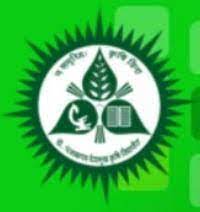
 Akola, Maharashtra
Akola, Maharashtra
 Collage
Collage
 1970
1970
 AICTE
AICTE
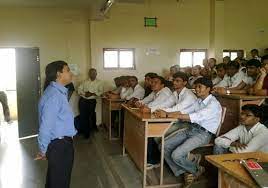
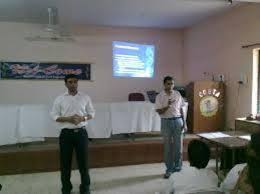

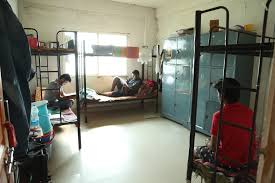
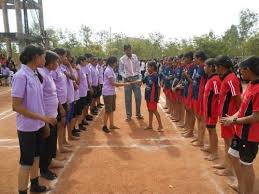
![Dev Bhoomi Uttarakhand University - [DBUU], Dehradun](https://cdn.universitykart.com//Content/upload/admin/lsfohlb4.1j1.png)



 back
back